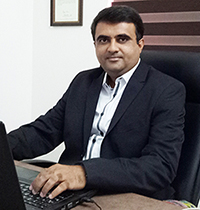The critical factor I diagnosing inflammatory back pain, or back pain of any nature, is to seek professional help. You need to see both a reputable brain surgeon who has knowledge of the brain and spine.
They will help you to understand the diagnosis and which medications can help maintain your quality of life.
Of course, it’s good to have an idea regarding how inflammatory back pain is diagnosed and what medications are available.
The Diagnosis
Inflammatory back pain is best described as a chronic condition that usually starts before 40 years of life. For it to be diagnosed the pain must last for 3 months or more. The pain associated with inflammatory back is worst in the morning and becomes better throughout the day, especially if you exercise.
There is a strong connection to spondyloarthropathies but this is not necessarily the condition causing the back pain. One of the most common versions of inflammatory back pain is Ankylosing spondylitis which is actually a type of arthritis in the spine. It causes the sacroiliac joints to become inflamed, creating pain in your back.
It’s worth noting that this condition is two to three times more common in men than it is in women. A tendency toward this condition is generally inherited. The inflammation can also affect the kidneys, heart, lungs, and even the eyes.
It’s worth noting that inflammatory back pain is not the result of physical trauma. Most patients will experience periods of intense pain and periods of remission.
Medication Options
There are several medication options available to people suffering from this condition. One of the most prominent is NSAID. These are Non-Steroidal Anti-Inflammatory Drugs which are often used to reduce pain, lower high temperatures, and decrease inflammation.
People suffering from painful periods, consistent headaches, sprains, colds, and a variety of types of arthritis may be prescribed to alleviate their conditions.
NSAIDs can also reduce the clotting action of your blood. It’s important to be aware of this as you’ll bruise more easily and increase your risk of getting upset stomachs and kidney issues.
That’s why the prescription of this medication should be carefully controlled by your doctor.
The reason NSAID work is that they prevent your body from producing the enzyme COX-2 which is produced in abundance when your body suffers an injury. This enzyme creates the inflammation that protects the injury. By blocking the function of the enzyme the inflammation will be reduced, lowering the amount of pain you feel from your spine.
Your doctor will help you to find the right NSAID and the appropriate dose strength.
Diet
You should also look at your diet. Reducing bad fats and increasing good fats will help to reduce the inflammation in your spine. You should also avoid cooking at high heat as this damages the nutrient content of food, potentially worsening the symptoms of inflammatory back pain.
You’ll probably already know that it’s best to quit smoking.
Exercises
General exercise helps to reduce the inflammation and provides pain relief. However, you should also do low impact extension exercises. This will strengthen your core and back, reduce inflammation, and help you to manage the pain.
The best solution for you is personal but, with a little trial and error, you can regain your quality of life, even when suffering from inflammatory back pain.

